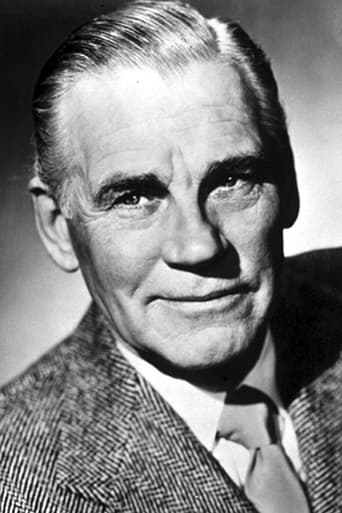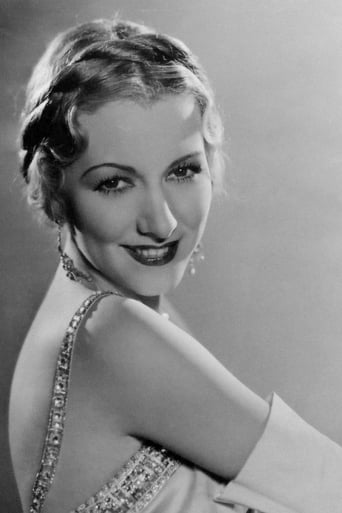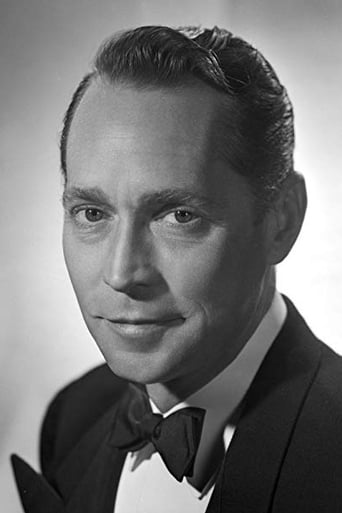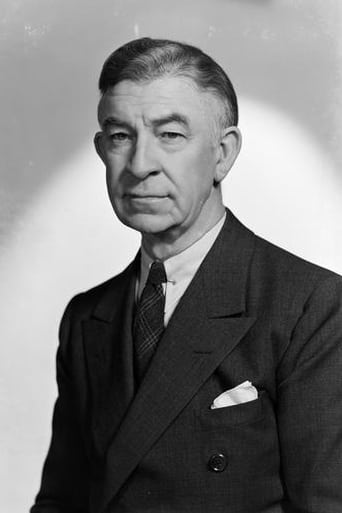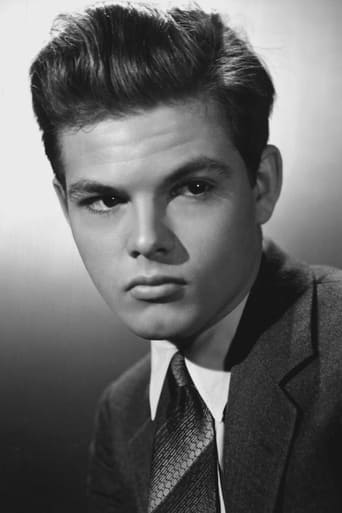Diagonaldi
Very well executed
FeistyUpper
If you don't like this, we can't be friends.
Pacionsbo
Absolutely Fantastic
TrueHello
Fun premise, good actors, bad writing. This film seemed to have potential at the beginning but it quickly devolves into a trite action film. Ultimately it's very boring.
Larry41OnEbay-2
From my introduction at the Library of Congress in 2012. The motion picture GABRIEL OVER THE WHITE HOUSE is a unique example of the genre of political drama, in fact it maybe the only Presidential biography movie as science fiction fantasy. Nancy Loe a historian and author on William Randolph Hearst sent an email to my wife Jenny this afternoon when she heard we were playing this film here tonight. And I quote: "Hearst's political ideas were directly expressed in his 1933 production entitled Gabriel Over the White House. The movie relates the story of President Jud Hammond (played by Walter Huston), whose ineffectual responses to the economic blight of the Depression satisfy only the corrupt political machine that secured his election. Through the intervention of a reporter (assisted by the angel Gabriel), Hammond abandons his passive Herbert Hooverish policies and transforms himself into "a dictatorial presence made in differing parts of Theodore Roosevelt, Abraham Lincoln, and Huey Long. Hammond is granite in feature, solemn in word, aggressive in manner, and unconstitutional in action." Both the screenwriter, Carey Wilson, and the producer, Walter Wanger, recall Hearst participating actively on this film, even to the point of writing or rewriting the Presidential speeches used in the movie. Hearst hoped the film would inspire additional public support for newly-elected President Franklin Delano Roosevelt. Hearst had not endorsed Roosevelt's Presidential aspirations until it became clear that Hearst's first choice, could not swing the necessary votes on the convention floor. Hearst agreed to release California's crucial delegates to Roosevelt from the Gothic Library, Hearst's private San Simeon office, and Roosevelt was duly nominated. Although he would soon break with Roosevelt, primarily over the issue of taxes on the wealthy, Hearst agreed with FDR that the first hundred days of the Roosevelt administration were crucial. Gabriel Over the White House, containing several references to the recent 1932 Presidential campaign, was a direct effort on Hearst's part to smooth the path for the real-life President he had helped into office." – Unquote. Made during the Pre-Code era the production code was more relaxed towards controversial story lines. The author of the novel that the film was based on Thomas Frederic Tweed who wrote the novel originally called "Rinehard" in England but changed to "Gabriel Over the White House : A Novel of the Presidency" for the U.S. I checked Amazon.com for copies of the book and only found three available selling for between $484 and $750.Tweed worked for a British politician David Lloyd George during the 1920's as a personal secretary. In the film he is portrayed by the Franchot Tone character. In real life he also fell in love with his bosses pretty personal secretary, in the film played by Karen Morley. But when he wrote his novel he changed the story to the 1950's and had it take place in the United States. But what was in the mind of the audiences of March 1933 when this film was brand new… The Great Depression started in October of 1929 with the stock market crash setting off a decade of high unemployment (15-20% by time this film opened), poverty, low profits, breadlines, etc. causing a general loss of confidence in economic growth. The depression bottomed out in the winter of 1932/33, just as Roosevelt took over. There are some incidents based on fact like when the movie shows an army of the unemployed in real life in 1932 the Bonus Army marched on Washington and then President Hoover asked the Army to force them out. In the movie a better solution was found and many of other aspects of the new deal are hinted at like the Works Progress Administration and the Civilian Conservation Corps. In conclusion this is not a great film, actually a bizarre film with strange ideas but a work of fiction that is never boring. And it's a great chance to see little Dickie Moore one of the little rascals who plays the presidents nephew, who is still alive and turned 87 this past September 12. I hope you enjoy this unusual film.
vincentlynch-moonoi
I'm not always a big fan of movie remakes, but every once in a while a film comes along that is just screaming out to be remade...and it seems to me that this is one of those films. The primary reason I think that is because the historical perspective that allows this film to make sense is missing. Few Americans today know of the Wilson-era march on Washington by WWI soldiers, as well as a number of other events that helped frame this movie when it was made back in 1933.Other reviews here outline some of the tapestry of the time -- FDR, the New Deal, and William Randolf Hearst -- so I won't go into that pertinent history, but I do recommend that you read one of the historical blurbs about this film BEFORE watching it...that will clear up a lot of confusion about exactly what's going on here. The Wikipedia synopsis of the film does this quite well, as one example.Another problem with this film, was that it is like so many Pre-Code films where production values were not very sophisticated. Here you will see too-long silences where today they might be some background music.This is not to say that this film will not interest movie lovers, but a modern audience may find it a bit stodgy. I enjoyed it because I have long felt that Walter Huston is a much-forgotten fine actor. Most who do recognize him today see him more as a character actor, but he was a true star at one time, and his performances are almost always quite stellar (including here). It's never totally clear in the film whether the President is receiving divine guidance from Gabriel (or God), or not...though it is clearly implied...and certainly has a sinister note to it...but then again, you must consider William Randolph Hearst's influence here. Spooky!
deschreiber
This is truly repulsive American jingoism. In the final scenes we see the American president, surrounded by representatives of all the other great powers of the world, give them a public tongue-lashing, into the radio microphones, no less, like a strict school-teacher scolding a bunch of children. He treats them to a display of naval air bombardment, as a warning of what to expect from the U.S. They are subdued and cowed. As the film concludes, all these world representatives are gathered indoors for a signing ceremony. They mill around, they chat, they wait until trumpets sound and someone calls, "The President of the United States!" and the president walks down a set of stairs into the room. The crowd bows to him and part the ways in silence. Gag! At the end, as the president is dying, his adoring wife tells him, "You are the greatest man who ever lived!" Yes, it is a chilling portrayal of American fascism. It is even more chilling to think that the American public would have had an appetite for this kind of unspeakable jingoism at the time. "If we only had a leader like that!" The film was release in 1933, the very year that in Der Fuerer (The Leader) was elected Chancellor.
brentkincaid
This is a strangely beautiful and at the same time, ugly portrait of Washington, DC as William Randolph Hearst was silly enough to want it to be. This movie is a tone poem and lesson to all those who look to each Presidential election for salvation from some messiah. If anyone thinks a strong hand is needed to fix things, watch this movie.To be sure, the message of this movie is the opposite of what I have stated here; it means to tell you a strong hand is needed and will be wildly successful. But, what it does NOT show is what happens as a result of the thoroughly fantastic (in the truest sense of the word) "Washington Covenant" the President of the United States forces down the throats of our World War I allies. The audience doesn't see how it won't work; can't work. We don't see the nations of the world lining up against the US and marginalizing us.But, never mind. After eight years of George Bush doing just that, the movie is a crunchy peanut butter and preserves sandwich of a desert. With marshmallows. There is a particularly prescient moment when the President admonishes and warns the convened leaders of the world (these are countries that owed us war debts and did not pay them, but instead squandered millions on war tools). The President warns about weapons from the air that will kill millions, including children. He warns that new weapons will antiquate old ones…making us think of the atomic bombs used on Japan. And, then he warns of death rays. It was almost funny there for a second.But, make no mistake. This is not a comedy. It is in deadly earnest, and as the title warns, it is based in Christian concept. Some of the acting is lamentable, but most of it is top drawer and Huston is wonderful as this venal president who reforms due to a power we don't see, but can see working in the miracles performed on the man. I suspect this was a rather successful movie.I suspect, however, this is probably a major tank of fuel allowing the Anti-American Activities people in Washington to start considering outlawing Hollywood. I understand W.R. Hearst was behind this in a Citizen Kane moment of his strange career and that alone gives this a tantalizing back -story cache. )

